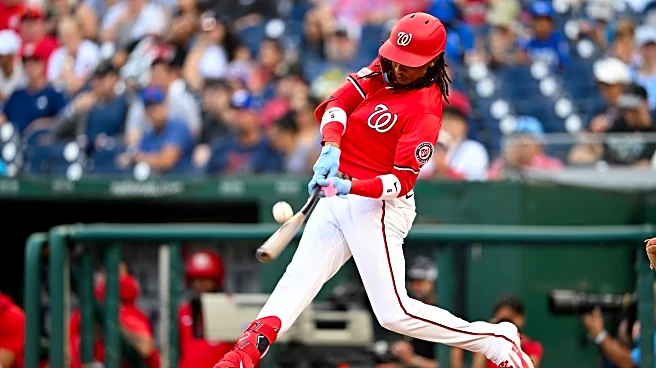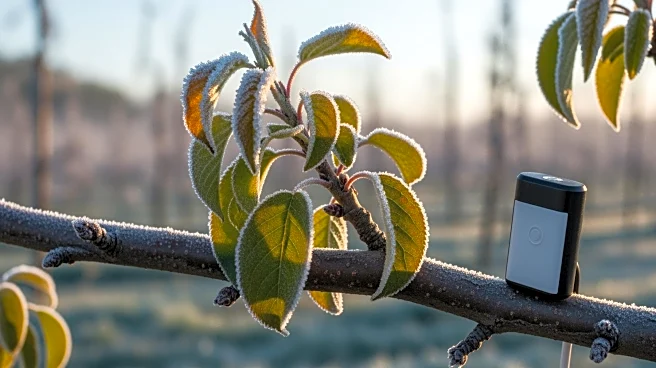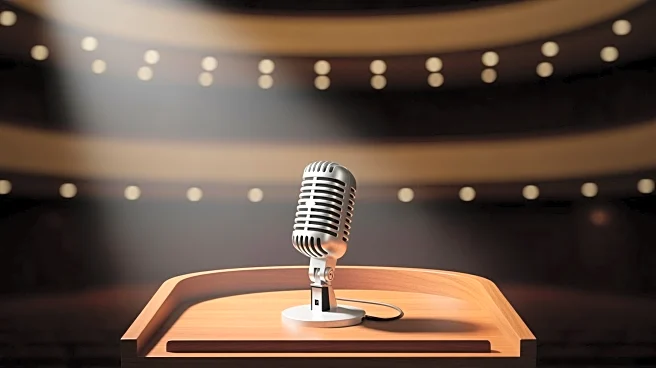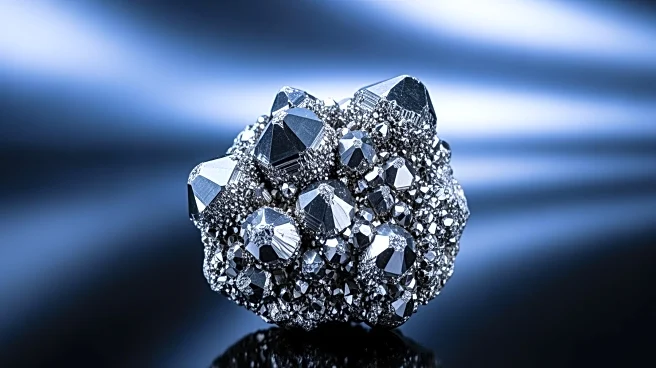The Nationals are open for business this offseason and are receiving calls for all their top stars, with MacKenzie Gore and CJ Abrams generating the most trade buzz. While a good number of Nats fans have
come around on the idea of trading Gore, who is a free agent after the 2027 MLB season, many still are turned off by the idea of trading Abrams, who is under team control through the 2028 season.
Would it be difficult to watch the young shortstop, who is one of the faces of the roster currently, be shipped away for prospects, especially when he was once one of those prospects being acquired meant to turn the team around? Absolutely. It isn’t, however, as crazy as it sounds, and I believe it would be beneficial to cash in on his value now for multiple reasons.
For starters, Abrams has improved every year offensively since he entered the league, going from a 72 wRC+ in 2022 in 70 games to a 107 wRC+ in 144 games in 2025, but it’s hard to imagine his offensive ceiling is much higher than where he is currently. He has managed solid power numbers thanks to a strong ability to pull fly balls, but he hasn’t managed to hit over 20 in a season due to his lack of raw power, as he has ranked in the 29th percentile in average exit velocity in back-to-back seasons.
The lack of raw power wouldn’t be as much of an issue for Abrams if it weren’t for the fact that his plate discipline is suspect as well, and still hasn’t improved after 4 years in the bigs. He improved his walk rate from 9th percentile in 2023 to 28th percentile in 2024, but regressed back to the 20th percentile in 2025. The issue for Abrams has been his inability to avoid chasing pitches, as he has ranked 20th percentile in chase rate all 4 years of his career.
While the old staff of hitting coaches in DC were notorious for not instilling a proper plate approach in their hitters, and a new coaching staff should help Abrams see improvements to his plate discipline, it could be a process that takes several years, with Abrams possibly hitting the open market by the time they maximize it.
The other reason the Nats should heavily consider trading CJ Abrams is that his defense is terrible, and he has not shown any signs of improvement. The Nationals have gotten the worst up-the-middle defense in baseball for several years, and Abrams has played a big part in that, ranking in the bottom 3rd percentile or worse in Outs Above Average at shortstop for 4 consecutive years now.
He has the speed to play the position, but the combination of bad jumps and a below-average arm has led to him being one of the poorest defenders in baseball at maybe the most valuable defensive position. Thanks to his athleticism, he could likely make the transition to another position, such as second base, something that seems very likely if he were moved to a contending team at some point.
This isn’t to say Abrams is a bad baseball player; in fact, he is far from it. Utilized correctly, Abrams could be one of the best second basemen in baseball, showcasing the speed and bat-to-ball skills of a great leadoff hitter, as long as his plate discipline improves. But, based on the underlying metrics, which don’t suggest much more offensive improvement, and the shaky defensive performance (not to mention the off-the-field issues in 2023, which it is unknown if are fixed), I am very much for at least listening to offers from contenders about Abrams, and making a deal for the right price.
So what is Abrams worth in a trade? With 3 years of team control, a 3 fWAR season behind him, and projections that hold him at about 3 WAR again entering next season, we can assume Abrams would be a decently hot commodity on the trading block, fetching at least one top 100 prospect, possibly more, and some lottery tickets in another team’s system as well. For instance, if the Nationals were to send Abrams to the Mariners, they could likely acquire catcher Harry Ford, MLB Pipeline’s 38th-ranked prospect in baseball, along with several other prospects within their top 30.
While it would be difficult to watch another fan favorite player shipped off in a trade for future talent, especially when Abrams was once that future talent acquired in a trade, it ultimately may be the best course of action to restock the farm system, as Mike Rizzo and company left the Nationals in a difficult spot with a not-good-enough big league roster, but also a too shallow farm system. I trust Paul Toboni and his staff will do their due diligence this offseason on all their assets, and if they believe they are getting a fair deal in a trade for Abrams, I am all for it.










